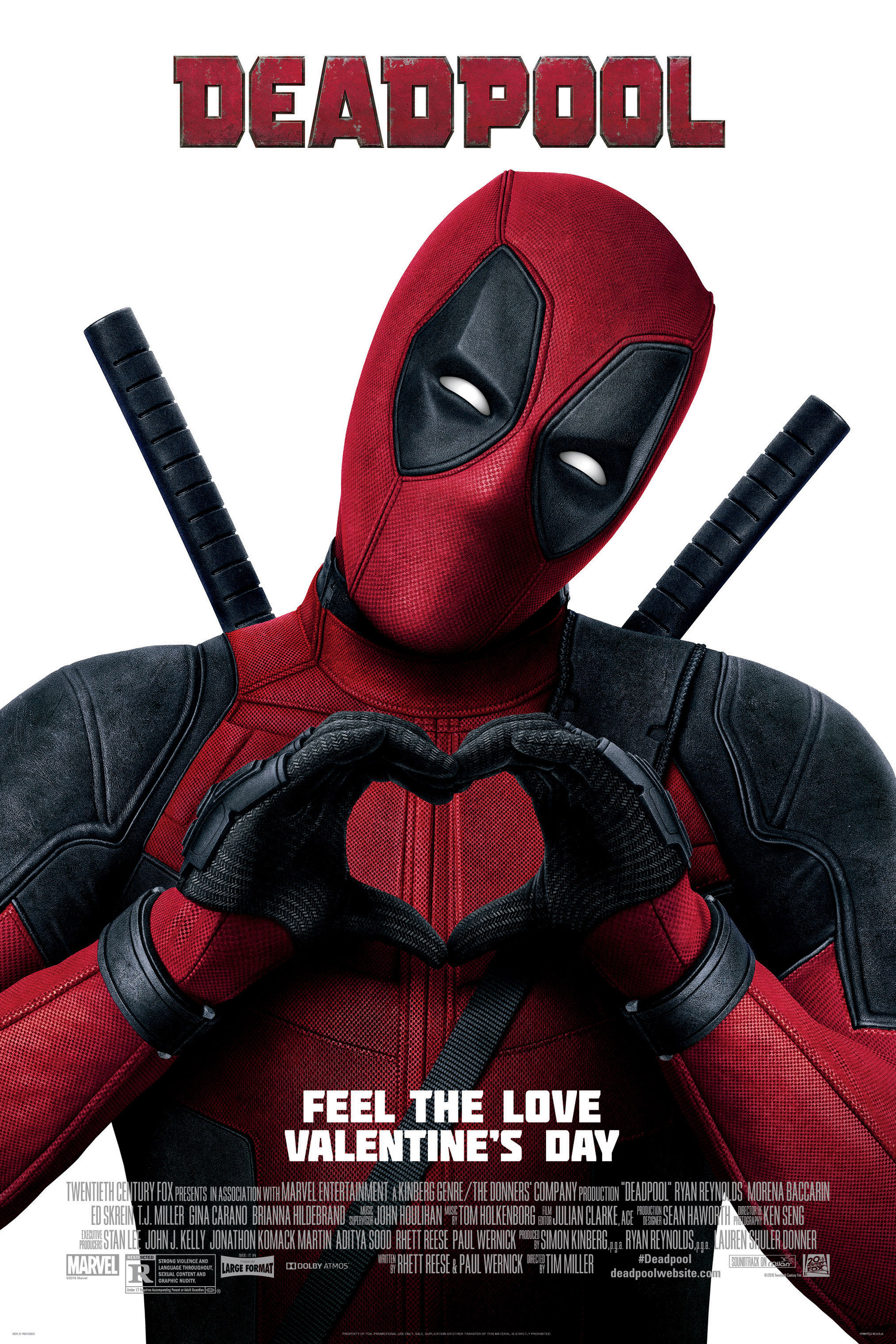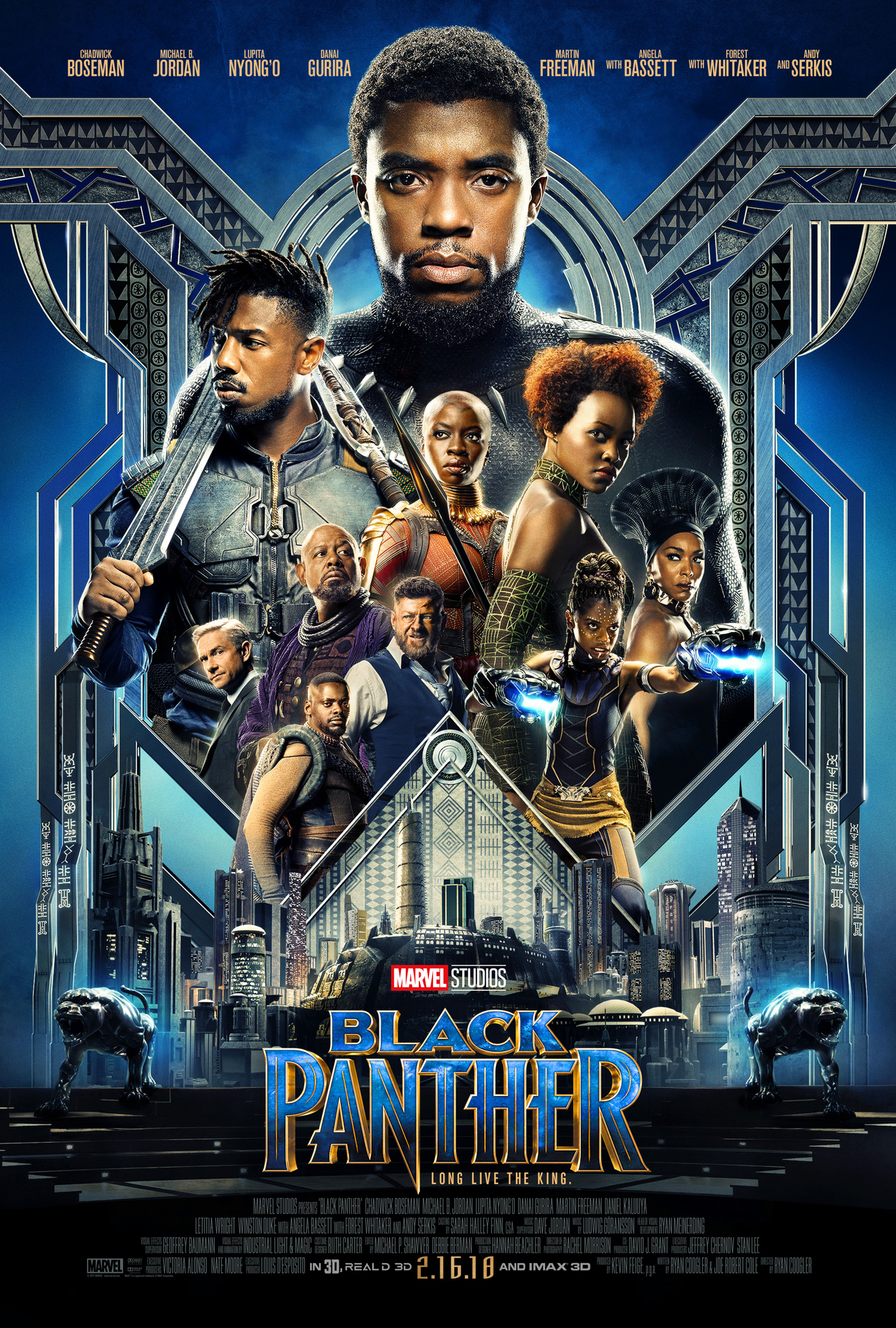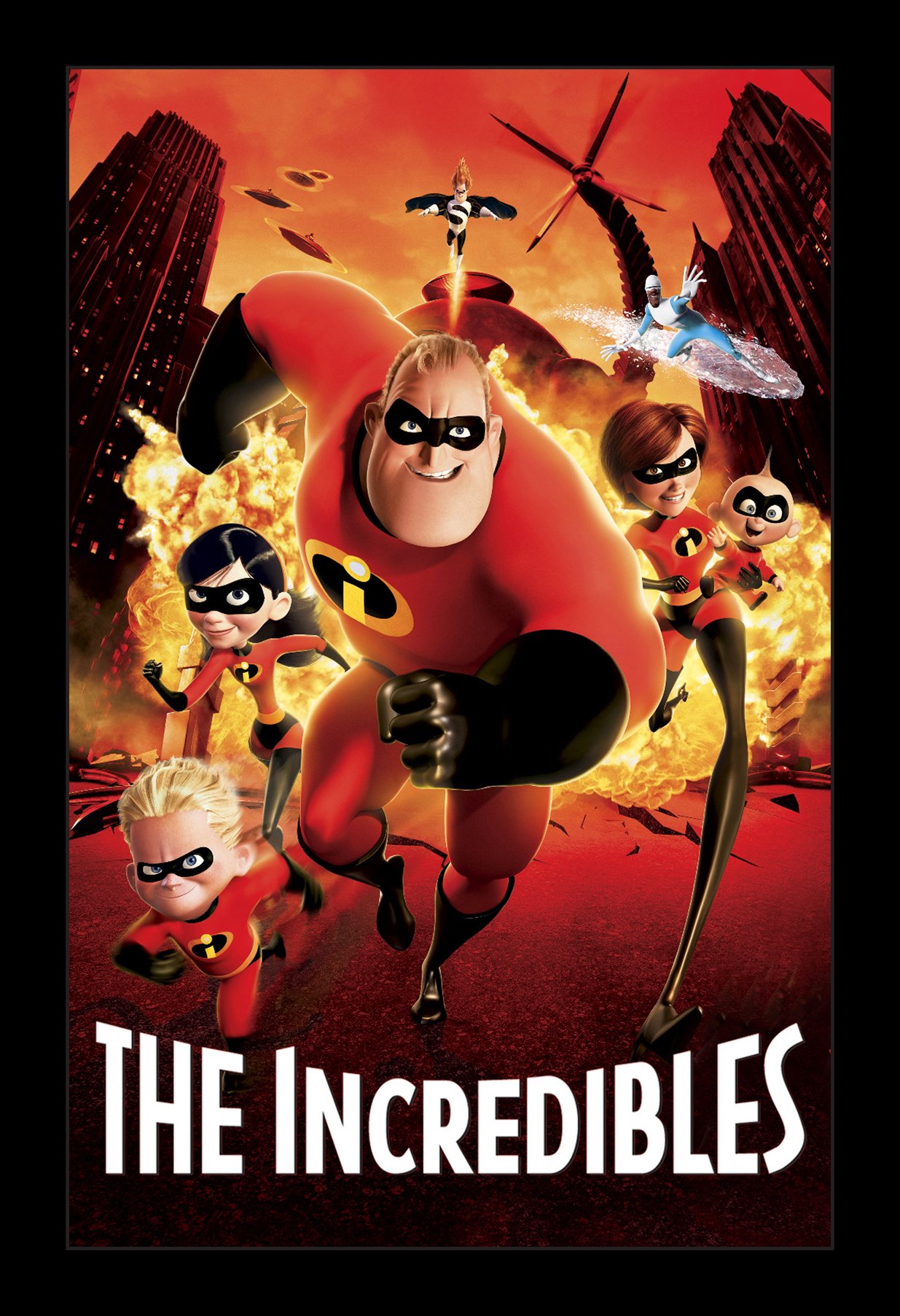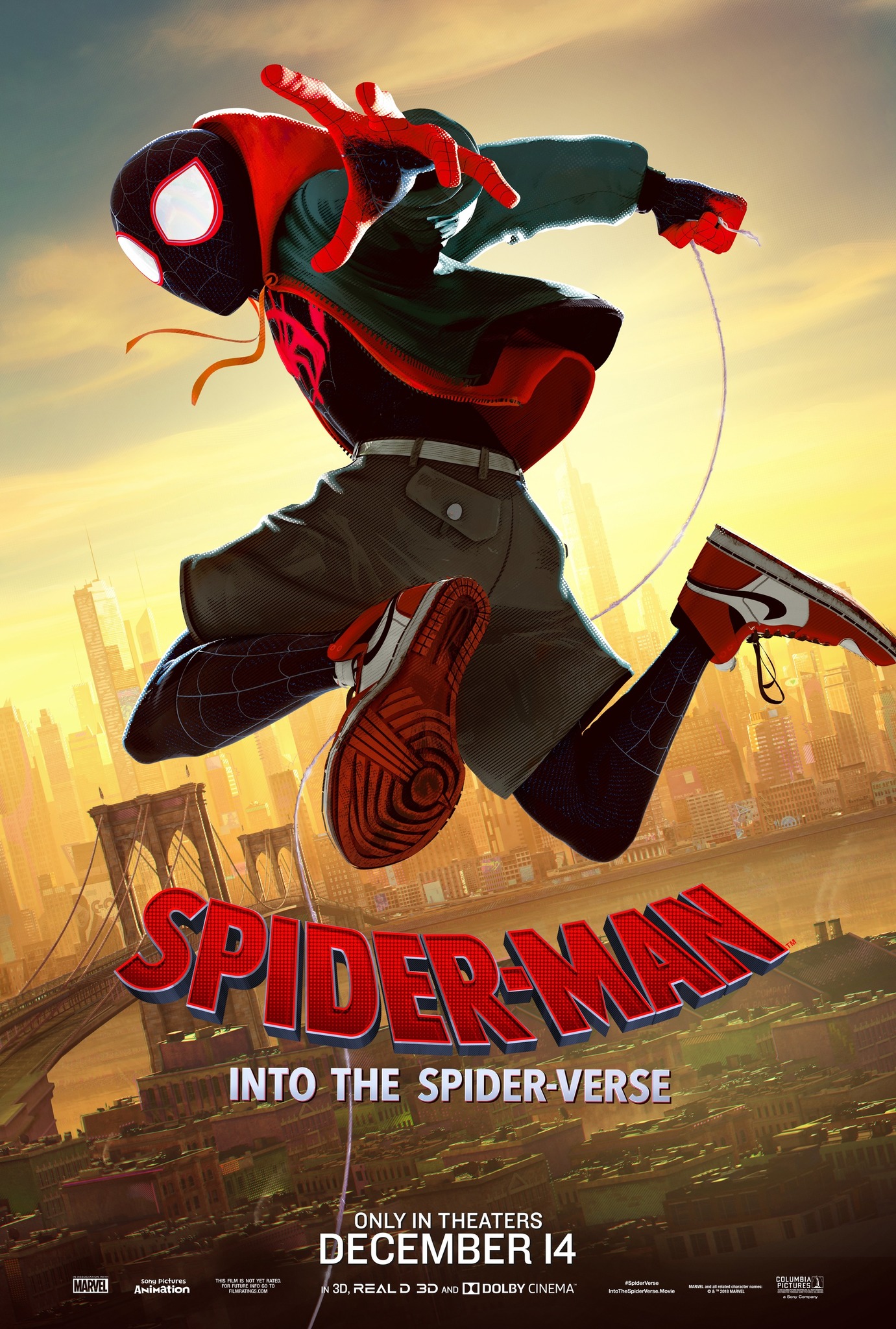
Deadpool

Deadpool is the cinematic equivalent of that kid in school who would always say how much he did not care what people thought of him, but just loud enough so everybody could hear him. It is the teenager who pretends to be too cool to care, but wants you to like him so badly it hurts. Of course, this is partially a byproduct of being a cog in the machine of the superhero movie marketing system you unavoidably have to hit a few of the beats of the genre in order to satisfy the audience. However, Deadpool fails to live up to the potential of its beloved source material, subverting its own agenda by becoming a remarkably generic, by the numbers man in tights flick. Deadpool is about a guy who constantly pushes back against the expectations of the superhero, but the movie about him fails to match his rebellious personality. It is a remarkably straightforward origin flick, lacking in true satire of its genre, carried almost entirely by its lead. Deadpool is a fun character, but he is still in search of a fun movie to match his larger than life personality.
Cast List
- Ryan Reynolds
- Morena Baccarin
- Ed Skrein
- T.J. Miller
- Gina Carano
- Leslie Uggams
After years in development limbo, Ryan Reynolds finally gets a role that he was undeniably built for in this adaptation of Fabian Nicieza and Rob Liefeld Marvel creation. A lot of pushback against reviews of comic book films tends to come from those who believe the critic unaware of the source material inherent strengths, so it seems fair to note that I read Deadpool back in the 90s. I know the character has come a long way since then, but the movie iteration is not that far from what I remember about the man in red who refused to play by the rules.
The movie version of Deadpool will remind you, over and over again, often in fourth wall breaks, how much he does not care about those rules. The majority of Deadpool plays out in flashback after an opening sequence in which Deadpool destroys a convoy carrying his nemesis, Ajax (Ed Skrein). We learn that Deadpool used to be a merc named Wade Wilson (Ryan Reynolds). We meet two key figures in Deadpools life: girlfriend Vanessa (Morena Baccarin) and best bud Weasel (T.J. Miller). Wade and Vanessa seem to be charting a course to Happily Ever After when Wilson is diagnosed with late stage cancer. A mysterious recruiter (Jed Rees) offers Wilson a deal: submit to the testing of the Weapon X program (which created Wolverine), and save your life. Wilson is experimented on by Ajax (and his partner in villainy named Angel Dust, played by Gina Carano) and becomes a mutant, blessed by enhanced fighting and regenerative powers. When Ajax leaves him in a burning building, Deadpool spends the next year training to hunt him down and kill him. Two X Men Colossus (a motion captured performance by Stefan Kapicic) and Negasonic Teenage Warhead (Brianna Hildebrand) try to intervene to keep the delicate balance between mutants and humanity from getting too violent, and end up fighting alongside Deadpool.
Black Panther

A jolt of a movie, Black Panther creates wonder with great flair and feeling partly through something Hollywood rarely dreams of anymore: myth. Most big studio fantasies take you out for a joy ride only to hit the same exhausted story and franchise-expanding beats. Not this one. Its axis point is the fantastical nation of Wakanda, an African Eden where verdant green landscapes meet blue sky science fiction. There, spaceships with undercarriages resembling tribal masks soar over majestic waterfalls, touching down in a story that has far more going for it than branding.
Cast List
- Chadwick Boseman
- Michael B. Jordan
- Lupita Nyong'o
- Danai Gurira
- Martin Freeman
- Daniel Kaluuya
Wakanda is home to Black Panther, a.k.a. TChalla (Chadwick Boseman), the latest Marvel hero to leap off the comic-book page and into his own movie. Created in 1966 by Stan Lee (script) and Jack Kirby (art), the original Black Panther, a hepcat in a slinky suit with claws and ears, debuted alongside the Fantastic Four in an adventure in Wakanda, which is powered by a mystery metal, vibranium. It was a splashy, timely entrance (the revolutionary group that shares his name officially formed that same year), and by the end of his first escapade, the Four had assured TChalla there is no reason for the Black Panthers career to come to an end!
In the decades since, Black Panther has undergone a variety of costume alterations and adventures in the comics, some under the direction of the filmmaker Reginald Hudlin and, more recently, the author TaNehisi Coates. To direct the first Panther movie, Marvel tapped Ryan Coogler, who with his last outing, Creed, shook the dust off the Rocky series by giving it an African American champion played by Michael B. Jordan. For Black Panther, Mr. Coogler brought back both Mr. Jordan and some former crew members including Rachel Morrison, the director of photography on his first feature Fruitvale Station continuity that may help account for this movies intimacy and fluidity.
The Incredibles

The Pixar Studios, which cannot seem to take a wrong step, steps right again with The Incredibles, a superhero spoof that alternates breakneck action with satire of suburban sitcom life. After the Toy Story movies, A Bug's Life, Monsters, Inc. and Finding Nemo, here's another example of Pixar's mastery of popular animation.
Cast List
- Craig T. Nelson
- Holly Hunter
- Sarah Vowell
- Spencer Fox
- Samuel L. Jackson
- Jason Lee
If it's not quite as magical as Nemo, how many movies are? That may be because it's about human beings who have some connection, however tenuous, with reality; it loses the fantastical freedom of the fish fable.
The story follows the universal fondness for finding the chinks in superhero armor; if Superman had not had kryptonite, he would have been perfect, and therefore boring, and all the superheroes since him have spent most of their time compensating for weaknesses. Think about it: Every story begins with a superhero who is invincible, but who soon faces total defeat.
Mr. Incredible, the hero of The Incredibles, is a superhero in the traditional 1950s mold, dashing about town fighting crime and saving the lives of endangered civilians. Alas, the populace is not unanimously grateful, and he's faced with so many lawsuits for unlawful rescue and inadvertent side-effects that he's forced to retire. Under the government's Superhero Relocation Program, Mr. Incredible (voice by Craig T. Nelson) moves to the suburbs, joined by his wife Elastigirl (Holly Hunter) and their children Violet (Sarah Vowell), Dashiell (Spencer Fox) and little Jack Jack (Eli Fucile, Maeve Andrews).
Spider-Man: Into the Spider-Verse

Mom, can we go see Into the Spider-Verse, again? my nine year old son asked me as I was tucking him in to bed the other night. And I was happy to hear his request. I had been thinking about how much I wanted to revisit the film for days after the screening we had attended, myself not only because it is such a pure blast of creative joy, but also because there is so much going on that a viewer could not possibly catch it all the first time around.
Cast List
- Shameik Moore
- Jake Johnson
- Hailee Steinfeld
- Mahershala Ali
- Brian Tyree Henry
- Lily Tomlin
It is only fitting that my kid would be thinking about Spider Man: Into the Spider Verse as he was drifting off to sleep. As rooted in a vividly specific, recognizable New York as it is, and as closely as it hews to comic book imagery and structure within its animated format as it does, Spider-Verse has a wonderfully trippy, dreamlike quality about it. And that is not just because it features a wisecracking pig in a Spider Man get up named Peter Porker, the kind of character you might conjure in your subconscious after eating too much barbecue and taking a shot of Nyquil before bed.
It would seem like an impossible feat, but somehow, directors Bob Persichetti, Peter Ramsey, and Rodney Rothman have breathed thrilling new life into the comic book movie. The way they play with tone, form and texture is constantly inventive and giddily alive. Given that we get a handful of Marvel films every year and we have certainly had no shortage of movies featuring Spider Man among them, either as a main character or as part of an assembled ensemble the idea of yet another might sound like overkill or worse: a shameless cash grab.